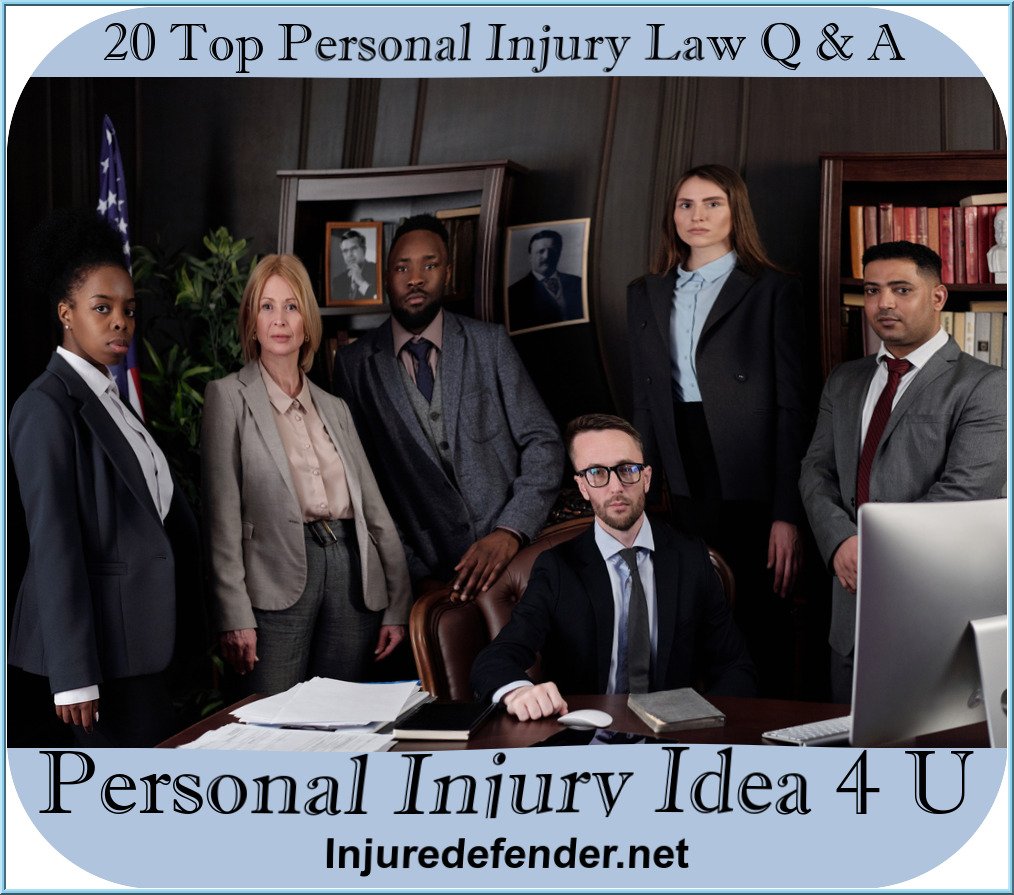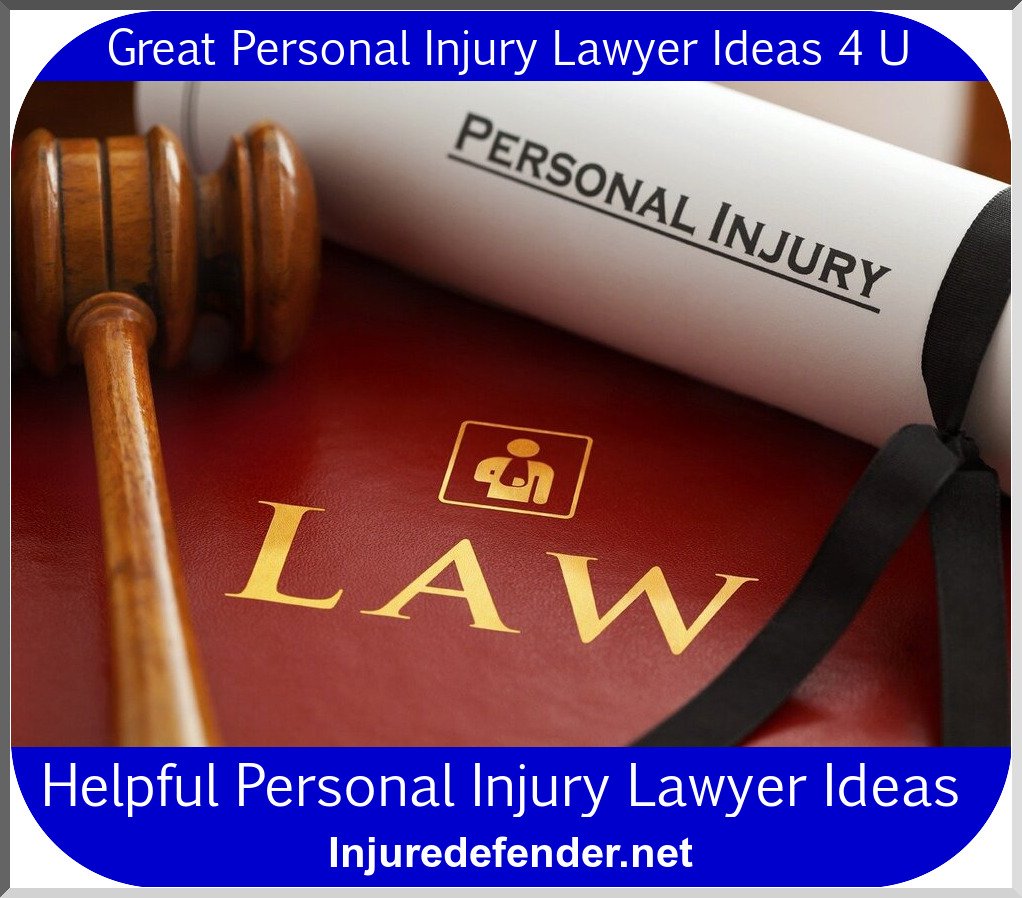
1. Personal Injury Law Basics
If you were injured in an accident, you may be entitled to compensation. When a personal injury happens, the injured person may have civil liability for damages that was caused by someone else’s negligence. This means you may be able to collect money from the person or company that caused the injury. In order to file a personal injury claim, you’ll need to gather documents that can help prove your case. This includes medical records, eyewitness accounts, and photos of the injury. You may also need to hire an attorney to help with the case. The attorney will be responsible for gathering evidence, interviewing witnesses, and strategizing on how to best protect your rights. If you decide to file a personal injury claim on your own, be prepared to expend a lot of time and effort.
2. The Purpose of a Personal Injury Claim is to Make Up for Damages
Suffered One of the primary purposes of filing a personal injury claim is to make up for the damages that have been suffered. These damages can include physical, emotional, and financial losses. In many cases, the person filing the claim may be entitled to money damages and, in some cases, they may be entitled to receive compensation for their pain and suffering.
3. Personal Injury Cases
Personal injury cases, also known as tort cases, arise when someone is harmed as a result of another person’s wrongful or unlawful act. This could include things like negligence, intentional acts, or even accidents. Personal injury cases can be very complex, and can involve a lot of evidence and negotiations between the parties. If you are involved in a personal injury case, it is important to have an experienced attorney on your side to help you navigate the legal system and get the best possible outcome.
4. What Do Plaintiffs Have to Prove in Order to Win a Personal Injury Case?
There are several factors a plaintiff must prove in order to win a personal injury case. These include proving:
(1) that the defendant’s conduct caused the plaintiff’s injuries, (2) that the injuries were a result of a legally recognizable harm, and (3) that the plaintiff was actually injured. In addition, the plaintiff must show that the injury was severe and incurred as a direct result of the defendant’s negligence.
5. What The Law Requires to Prove Negligence in a Personal Injury Case
A person who is injured as a result of the wrongful or careless acts of another is entitled to recover damages from the person(s) who caused the injury. The law requires the plaintiff in a personal injury case to prove four elements in order to prevail:
(1) that the defendant acted negligently; (2) that the plaintiff was injured as a result of the defendant’s negligence; (3) that the injury was a foreseeable consequence of the defendant’s negligence; and (4) that the plaintiff suffered damages as a result of the negligence.
6. Economic Damages and Non-economic Damages in Personal Injury Lawsuits
Economic damages are the financial compensation a plaintiff can receive as a result of his or her injuries. These damages can include lost wages, medical expenses, and pain and suffering. Non-economic damages, also known as punitive damages, are awarded to punish the defendant for their conduct. These damages can include financial compensation, humiliation, and any other type of punishment the court deems appropriate. Economic and non-economic damages are both important factors to consider when filing a personal injury lawsuit.
7. Recorded Personal Injury Cases Can Help Injured Parties in the Future
Recording personal injury cases can be beneficial to injured parties in the future. The process of recording a case can help to document the event and provide security for the injured party. Recording a case can also provide evidence in court if the case is ever resolved. Recording a case can provide a platform for the injured party to receive financial compensation.
8. Recorded Statements Can Be Used Against You in a Personal Injury Case
Depending on the particular facts of your case, recorded statements made during an investigation or interview can be used against you in a personal injury case. Statements that could be used against you include admissions of guilt, statements regarding the nature and extent of injuries, and statements regarding the settlement or settlement negotiations.
9. An Insurance Company Tracks Lawyers Experience and Success in Settlements
An insurance company tracks lawyers experience and success in settlements. Lawyers who have achieved a high rate of success in settlements are likely to be offered higher premiums and more opportunities for referrals. This information can be used by the company to assess the risks associated with each lawyer, and to make informed decisions about whether to retain that lawyer.
10. How to Get Your Case Settled Quickly and for Less Than You Think
The following is a comprehensive guide on how to get your case settled quickly and for less than you think. For many people, the goal of resolving a lawsuit is simply to put an end to the ordeal as quickly as possible. However, there are a number of things that can actually make the process more difficult and costly, and if you don’t take the time to avoid them, you may end up spending more money on a case than you need to. Some of the most common mistakes made during litigation include:
1. Filing a case prematurely – If you wait until the last minute to file a lawsuit, you may be running into complications that could delay the case or even prevent it from being resolved. By contrast, filing a case early in the process can allow you to work with your attorney to gather evidence and prepare a strong case.
2. Focusing on monetary damages – Often, the most important factor in a lawsuit is the settlement amount
11. Telling the Truth About Your Injuries is Key to Getting a Fair Settlement
According to the National Academy of Sports Medicine, telling the truth about your injuries is key to securing a fair settlement. If you can demonstrate that you did not injured yourself intentionally or through negligence, you may be able to receive a higher settlement than if you conceal your injuries. Furthermore, if you are able to provide medical records that support your story, your lawyer may be more likely to recommend a settlement that meets your needs.
12. Do Not Hide or Minimize Pre-Existing Conditions in Personal Injury Lawsuit
Statements Every personal injury lawsuit statement should state the extent of the plaintiff’s injuries and the damages they are seeking. Do not try to hide or minimize pre-existing conditions in your statement, as this could lead to an unfavorable verdict for you. Make sure that your injuries and damages are accurately represented in your statement.
13. Insurance Companies Spend Millions to Make the Public Think That Lawsuits Are a Waste of Time
Insurance companies spend millions of dollars each year to make the public think that lawsuits are a waste of time. They do this by creating ads and commercials that depict lawsuits as fraudulent and expensive. In fact, according to a study by The Boston Globe, insurance companies have spent more than $142 million on advertising that demonizes lawsuits since 1990. This propaganda has had a negative impact on the public’s view of lawsuits. In a survey conducted by the National Law Journal, more than half of the respondents said they had less favorable views of lawsuits following exposure to anti-lawsuit advertising. In addition, a study by the University of Michigan found that the more exposure residents had to anti-lawsuit advertising, the less likely they were to file a lawsuit in the future. This campaign by the insurance companies has had a negative impact on both the public’s view of lawsuits and the number of lawsuits filed. If the insurance companies are able to continue to propagand
14. Justice is Served when Injury Victims are Compensated Fairly
The doctrine of just desserts justifies giving a person what he or she deserves, as opposed to what the person actually earned. This principle is based on the notion that people must be rewarded for their bad acts, not their good ones. The just desserts principle has been applied in a number of legal settings, including contract law, tort law, and property law. In contract law, for example, a party who breaches a contract must pay the other party the full contract price, even if the other party did not actually deserve the full contract price. This principle is also applied in tort law, where a person who is injured by another person is generally only entitled to damages that are directly attributable to the injury. The just desserts principle has also been used in property law to justify giving a tenant an eviction notice, even if the tenant has performed all of his or her obligations under the lease. This principle is based on the idea that tenants should be rewarded for their
15. 17 Questions to Ask a Personal Injury Lawyer Before Hiring One
If you or someone you know has been injured in an accident, you may be wondering what to do. Here are 17 questions to ask a personal injury lawyer before hiring one:
1. What experience do you have representing clients in personal injury lawsuits?
2. How many personal injury cases have you won or settled in the past?
3. What kind of legal representation will you provide?
4. How much will you charge for your services?
5. What are your fees for filing a lawsuit, hearing a case, and/or representing a client during a trial?
6. Have you ever been disbarred, suspended, or sued by a state or federal court?
7. Have you ever had to represent a client in a criminal case?
8. Will you take the time to learn about my case?
9. Do you have any questions for me about my case?
10. What experience do you have with the legal system?
11. What kind of cases have you won or lost in the past?
12. What is your rate for legal services?
13. How much notice do you need to give you if you need to cancel an appointment?
14. Do you have a written contract with me specifying the terms of our agreement?
15. What is your policy on email communication?
16. Do you have a criminal history check done on any of your clients?
17. Will you represent me regardless of the outcome of the case?
16. How to Spot a Fake Personal Injury Lawyer
There are many ways to identify a fake personal injury lawyer. Some red flags to look for include: -Illegal or unethical practices -A lack of experience -Aances that seem too good to be true -Suspiciously high fees
17. The Role of a Personal Injury Lawyer
A personal injury lawyer is a legal professional who specializes in representing clients who have been injured as a result of another person’s negligence. The lawyer will investigate the accident and will work to find the perpetrator of the negligence and secure a compensation award for the client. The lawyer may also be involved in the legal process of filing a lawsuit.
18. 4 Top Questions to Ask a Personal Injury Lawyer
1. What types of personal injury cases are you experienced in?
2. What is your experience with the court system?
3. What is your experience with filing a claim?
4. What is your experience with negotiating settlements?
19. What Should You Do If You’re Considering Hiring a Personal Injury Attorney
? If you have been injured in an accident, you may be wondering what to do. Before you decide to hire a personal injury lawyer, you should speak to your insurance company. They may be willing to help you resolve your case without the need for legal representation. If you decide to retain a personal injury lawyer, be sure to pick one who is qualified and experienced in your area of law. This will help you get the most favorable outcome possible.
20. Personal Injury Law: Day in the Life
Each day as a personal injury lawyer, one is faced with the challenge of fighting for the rights of those who have been injured. A typical day begins with reviewing the latest case files, brainstorming possible strategies with one’s partners, and ensuring that all bases are covered for the upcoming hearing. After the hearing, one may be required to write letters, make phone calls, and attend court appearances. Throughout the day, one strives to provide the best possible legal representation for those who have been hurt. It is a challenging and rewarding profession, and one that is necessary in order to protect the rights of those who have been injured.



